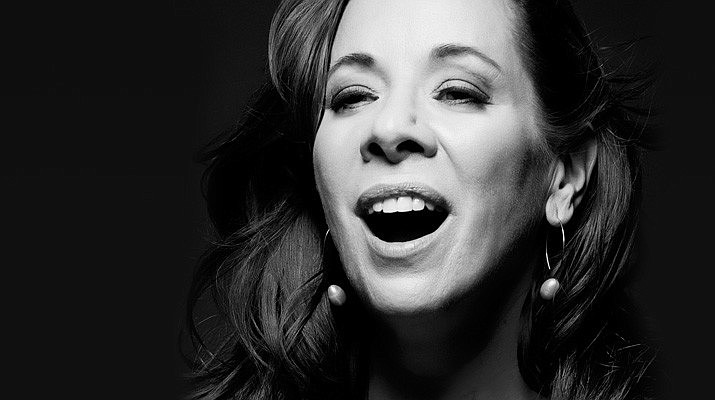- November 28, 2024
-
-
Loading

Loading

The gypsy, Carmen, believes in fate. She sees her own death with every card she deals at the smugglers’ rocky hideout and believes, because of an ominous confluence of circumstances, that she is doomed.
A similar confluence seemed to hover over Sarasota Opera’s opening night of Bizet’s “Carmen.” First, Carlos Monzon, the baritone slated to sing Escamillo, the toreador, was “indisposed,” and Kevin Wetzel, a Studio Artist in his Sarasota Opera debut, stepped in for him.
After the curtain rose, we heard Antonio Nagore, in the role of Don José, struggling mightily with the top of his tenor, leading us to wonder if he, too, was ill. (We were informed before the third act that he was, indeed, suffering from the after-effects of bronchitis.)
Attending any opening night can be a mixed blessing. There’s all the glamour of gowns and flash of excitement. But there are also opening-night jitters, pitch going too high with excitement and too low with fear, curtains getting caught on scenery, costume malfunctions and singers getting ahead of or behind the orchestra.
Whatever the cards dealt Sarasota Opera’s opening night of “Carmen,” there were several auspicious signs that offset the beleaguered performances and stressed performers.
There was the orchestra, which, under the direction of Artistic Director and Principal Conductor Victor DeRenzi, was positively unblemished. In fact, there were moments of such crystalline playing, it was tempting to close your eyes and simply bask in the gorgeous orchestral sound emanating from the pit. From the spirited overture to the gorgeous duet between flute and harp before the third act, this was a spectacular instrumental performance.
David P. Gordon’s scenery, matched by Ken Yunker’s lighting, brought us a brilliantly colorful, stylistically authentic town square in Seville, a flamboyant gypsy inn and a mountain pass so craggy, we wondered if the smugglers would actually find their way to it. There was a charming moment when the tips of the gypsy girls’ cigarettes glowed and flickered like a flight of fireflies in the darkness. And the twinkling of the stars, as night came on during Micaela’s aria, seemed to glow as Danielle Walker’s lovely soprano came to life in the mountain pass. Micaela, a part that carries with it some of the most beautiful music in the opera, is sung by a character that can be interpreted as simple but was saved from true wimpishness by Walker’s beautiful voice and unpretentious character.
“Carmen” has come to operatic stages in many guises. It began its life at the Opera-Comique, complete with spoken dialogue. Later, possibly because “Carmen” is as far from a comedy as opera or music theater can get, a grand opera version was created, cutting the dialogue and incorporating it as sung recitatives. Sarasota Opera went back to the original, using the spoken dialogue and, much to the credit of the singers and some excellent French diction coaches, the spoken portions were strikingly seamless.
What didn’t work was the staging. Martha Collins’ direction came off as blocking without motivation. There was too much full-frontal singing without any impetus for the action. Fredrika Brillembourg’s Carmen stopped short of being the fiery, life-loving, fearless, fearsome, audacious gypsy who knows the power of her body and mind over men of all shapes, sizes and backgrounds. Although her sizable and rich voice provided an excellent vehicle for the music, her persona was often monochromatic and somewhat superficial. Still, she came across as sexy and passionate, giving the impression that, with a different director, she could be a full-blooded, lusty and engaging Carmen.
Nagore’s Don José, struggling with vocal problems, actually got deeper into his character, but there was still an air of old-fashioned, stilted role-playing, rather than convincing characterization. And, although Wetzel’s Escamillo was more strut than flair, he made a courageous attempt to get into his part, possibly without sufficient rehearsal and preparation.
Dimitrie Lazich, as Morales, the first solo voice heard in the opera, set an auspicious tone for the future. Sarah Asmar’s Frasquita and Vira Slywotzky’s Mercedes were both convincing and well sung, while Stephen Fish, as Zuniga, had some problems with intonation that may be chalked up to opening-night nerves.
The stars may not have been aligned for this “Carmen” on opening night, but Bizet’s spirit got them through, as did his beloved and well-known arias and an orchestra and conductor that were at the very top of their game.